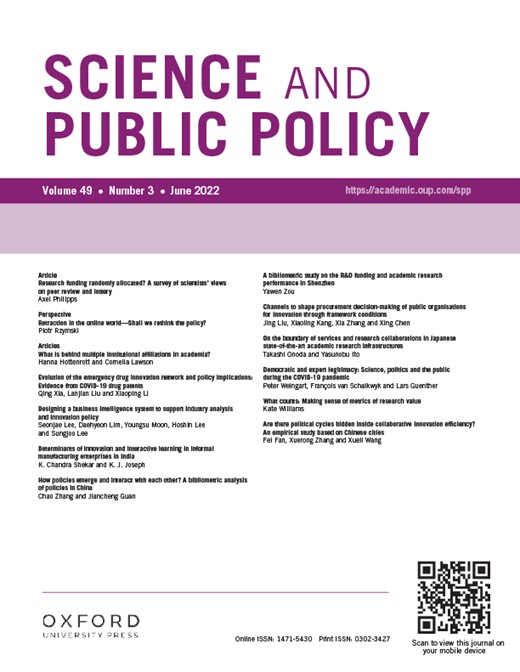-
Views
-
Cite
Cite
Fei Fan, Xuerong Zhang, Xueli Wang, Are there political cycles hidden inside collaborative innovation efficiency? An empirical study based on Chinese cities, Science and Public Policy, Volume 49, Issue 3, June 2022, Pages 532–551, https://doi.org/10.1093/scipol/scac005
Close - Share Icon Share
Abstract
Shifting political interests of government officials stemming from the Provincial Party Congress (PPC) affects the efficiency of urban innovation. In this paper, intra-city collaborative innovation efficiency (CIE) and inter-city CIE were both analyzed. The intra-city CIE among 285 Chinese cities from 2004 to 2018 was estimated using network data envelopment analysis model, with a gravity model utilized to measure inter-city CIE. Based on a fixed-effect model, the relationship between estimated change in CIE and political cycle is revealed from the perspective of PPC. The study finds that across all cities, (1) cyclical fluctuations in CIE synchronize with the timing of PPC. The inter-city CIE is more sensitive to political cycles than that of intra-city. (2) The turnover effect of PPC cannot be equated with leadership transition alone at non-PPC years. Furthermore, heterogeneity analysis identified differential effects of features of government officials and cities on political cycles of urban CIE.



